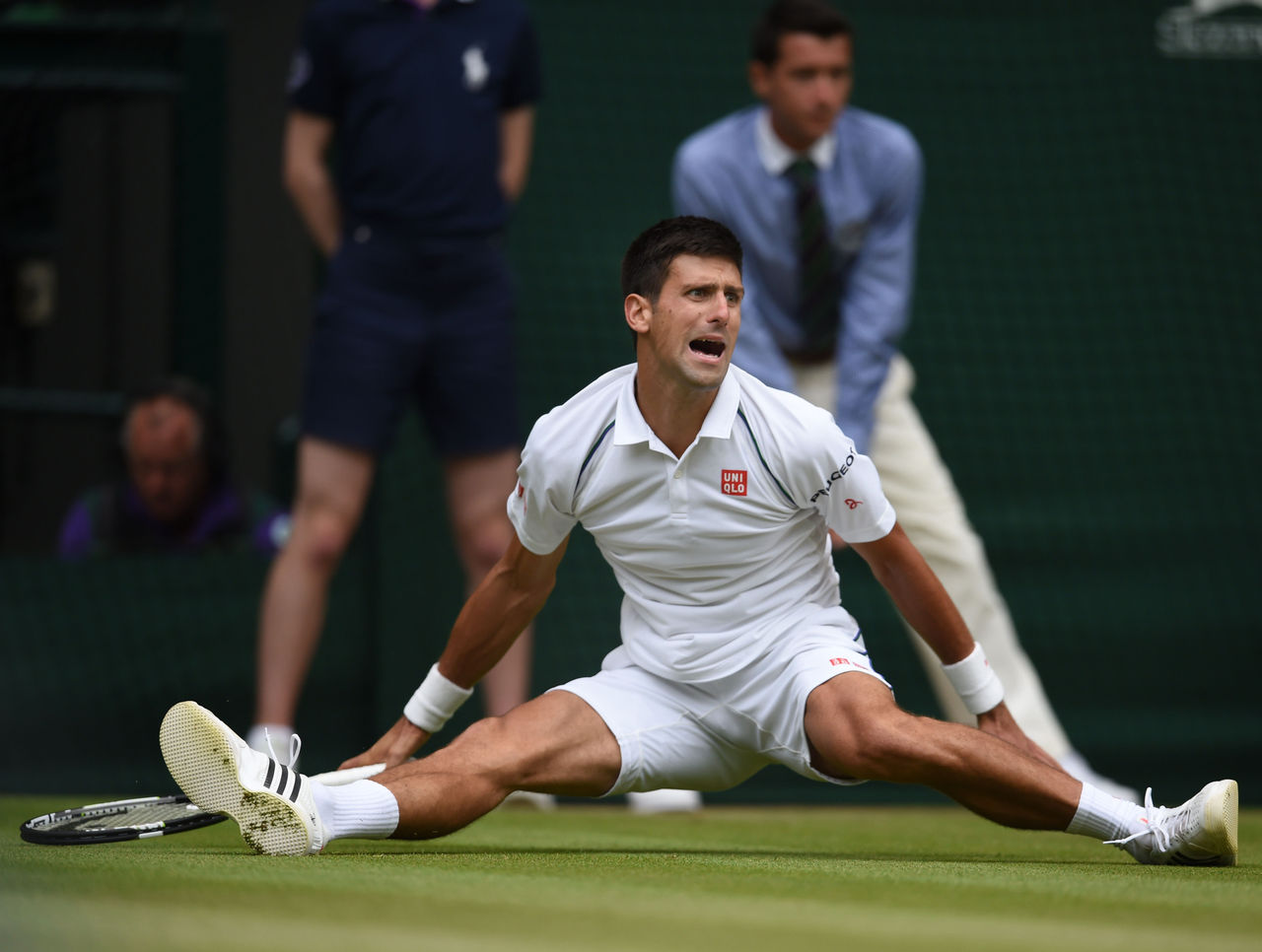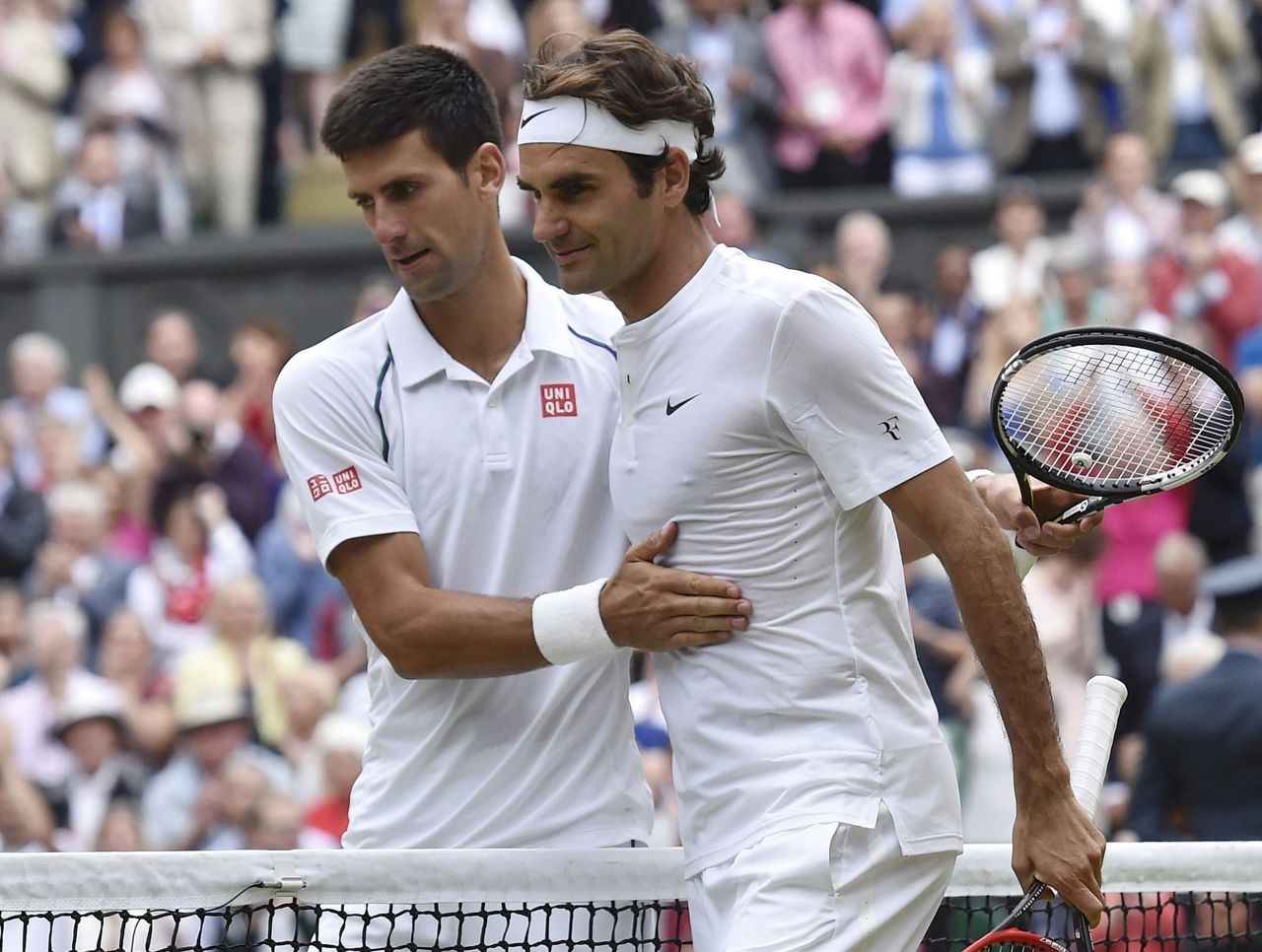Djokovic defeats Federer in 4 sets to win 3rd Wimbledon title
In four tense, entertaining sets, Novak Djokovic bested Roger Federer in the Wimbledon final Sunday for the second consecutive year.
For the second consecutive year, the unstoppable force crashed into the immovable object, with only the latter left standing. For the second consecutive year, the Centre Court fans found themselves unable to will their preferred outcome into reality, their attempts to hide their disappointment halfhearted at best.
Djokovic won the way he always wins: by taking care of business with his ultra-consistent serve, attacking his opponent's second offering (he won 60 percent of second-serve points, Federer won 49), and playing relentless, suffocating defense - slowly and methodically squeezing the life out of his opponent.
It was Federer who jumped out to the early lead, snatching a break to go up 4-2 in the opening set. Djokovic, as he's wont to do, broke right back - just the second time Federer had been broken in the tournament - coming from 15-40 with some terrific, deep returns dipped down around Federer's feet.
That proved an especially costly moment for Federer, who wouldn't break him again. Djokovic took the first set in a breezy tiebreak, and the two held serve all the way through to another breaker in the second.

It was the match's unquestioned pinnacle, both in terms of overall level and crowd engagement. Djokovic had earned a set point with Federer serving at 4-5, gotten himself a great look at a hanging ball in the middle of the court, and poked an extremely tight backhand well-long. He'd have six (!) more opportunities in the breaker. Federer saved them all, with a good deal of help from Djokovic, who dunked a couple jelly-armed shots into net. The tiebreak ran 15 minutes, with Federer finally winning it 12-10. If the Centre Court roof had been closed, it would've been blown off.
The roof wasn't closed, though, and when rain started to fall midway through the third set, the players had to leave the court for 15 minutes. The energy was never quite the same after the delay. Federer's level dipped, his backhand slowly broke down, and his volleys started to find the net. Djokovic started to turn the screw.
In the final two sets, the world no. 1 hit 23 winners and just five unforced errors. He managed to simultaneously dial down the risk and assert himself more. He simply stopped making mistakes. Djokovic faced just one break point in those two sets, and none in the fourth. And he avoided the pressure of having to serve it out, winning the title by breaking Federer with a scorching forehand winner.
As he'd done the previous two times he's won at the All England Club, he bent down to take a bite out of the Centre Court turf.

For Federer, there was no great show of emotion, the way we've seen in the past. There was no single tear rolling majestically down his cheek. He kept it together and spoke optimistically about the future.
"He played great," Federer said of Djokovic. "I didn't play bad myself so I can be very happy as well. That's how it goes."
Perhaps because of the level he's maintained all year, and especially the place he took his game to in this tournament, there's less a sense of something ending, of an opportunity irretrievably lost. He may still be sitting on 17 Grand Slams, but he's proven to himself and everyone else that there will be other opportunities in the future.
"I am still very hungry and motivated to keep playing," he said, "and a match like this, obviously, is very helpful."
For Djokovic, it was an incredible bounce-back from a devastating French Open final loss that cost him his best opportunity to date to complete the career Grand Slam.
"It's actually great that we have only a couple weeks, we have another Slam," he said of the quick turnaround from Paris to London. "Because I think from a psychological aspect it's very good because you can get back in that competitive mode right away."
The title match was like a microcosm of his tournament as a whole. He didn't always play his best, but when he did, he made it count. He won the majority of the points that mattered most. It wasn't always pretty but it worked, like it's been working all year.
This may not have been the outcome most in attendance wanted to see, but there's no arguing it was well-deserved.
HEADLINES
- ATP trying to help Medvedev leave Dubai after travel shutdown
- Medvedev collects Dubai title after Griekspoor withdraws with injury
- Tennis Australia's Craig Tiley to become CEO of USTA
- Roddick joining ESPN's coverage of Wimbledon, US Open
- Alcaraz takes down Fils in less than an hour to claim Qatar Open title